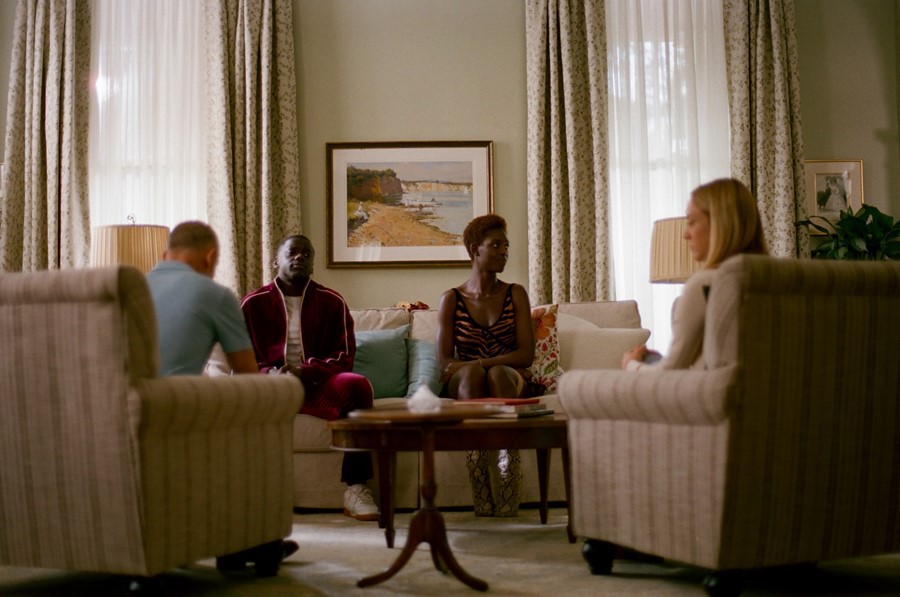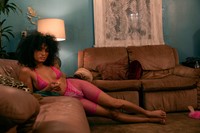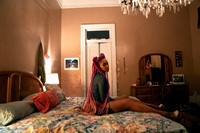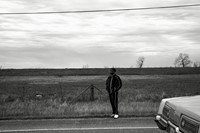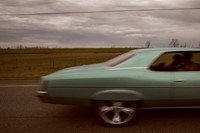Filmmaker Melina Matsoukas reveals the story behind her powerful feature debut, Queen & Slim – a story of black love and police brutality in modern America
“I love to create things that are both political and entertaining and that have something to say that feels necessary,” Melina Matsoukas tells AnOther over the phone from her home in LA. The New York-born director is best known for her powerful music videos for the likes of Beyoncé (Formation) and Rihanna (We Found Love) – both of which saw her scoop a Grammy Award – and Solange (Losing You), and most recently for her debut feature film, Queen & Slim, written by Lena Waithe of Dear White People and Master of None fame.
Political, entertaining and necessary are perfect words to describe the film, which centres around its two titular characters – a black woman (model Jodie Turner-Smith, in her impressive acting debut) and a black man (Daniel Kaluuya), who meet on a Tinder date one night in Cleveland, Ohio. When a white policeman pulls them over on their way home and senselessly opens fire, Slim kills the man in self-defence – and things escalate suddenly from awkward first encounter to a desperate flight for their lives, intensified by a viral video of the shooting which sees the pair “become a symbol of trauma, terror, grief and pain for people across the country” (to quote the film’s synopsis).
What ensues is a “couple on the run” movie like no other, propelled as it is by Matsoukas’ unique cinematic style, a string of remarkable performances and an urgent sense of anger. As the New Yorker’s Jelani Cobb points out, Queen and Slim aren’t criminals, they aren’t the “black Bonnie and Clyde” that Queen’s Uncle Earl jokingly dubs them: they are the victims of those employed to protect them, those who abuse their power again and again while nothing is done to invoke real systemic reform. (It’s no accident that the film begins in Cleveland, where Tamir Rice, a 12-year-old African-American, was killed by a racist police officer in 2014.)
“I believe greatly in the power of cinema to create change and when I read Lena’s script, I felt like it could do so,” Matsoukas says on taking on the film as her first feature. “I love its critique on modern society – it was a reflection on the black experience in America – and I also loved this idea of showing black love on screen and how unifying that can be for the community, for black people.”
There’s no doubt that Queen and Slim are an indelible cinematic duo, the former a strong-willed, pure-hearted criminal defence lawyer, the latter a family-loving everyman of simple pleasures – both of whom blossom exponentially as a result of their shared experience. “Daniel had already had a conversation with Lena and was quite convinced that he was Slim,” Matsoukas says of Kaluuya’s casting. “I was a little hesitant because I only knew him from Get Out and I didn’t think that character was very Slim. But when we met, I realised it’s a testament to his talent that he’s able to embody every kind of character so fully that you believe that that’s who he genuinely is,” she adds with a laugh. “Five minutes after sitting down, I knew I’d found my Slim.”
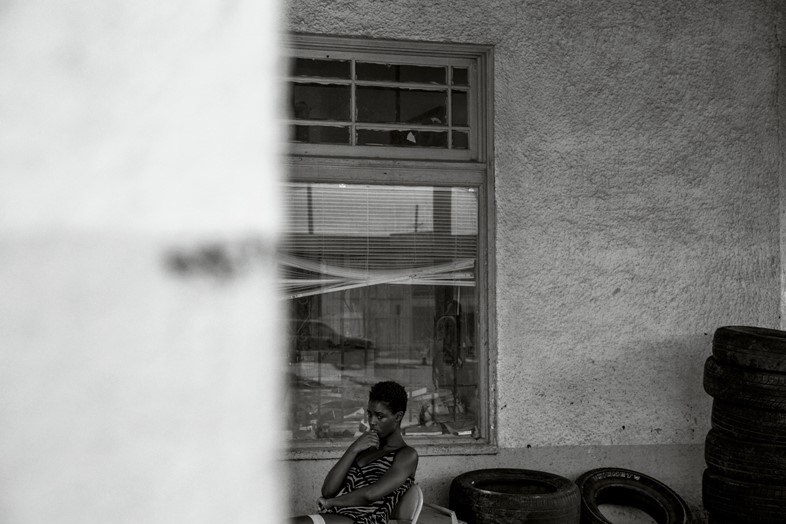
Turner-Smith was put forward by the film’s casting director Carmen Cuba early on in the process, Matsoukas explains. “Both Lena and I really wanted to use the Queen role as an opportunity to spotlight a new actress. We didn’t want to waste an opportunity to diversify the industry.” The director was immediately struck by the model. “She was royal upon first glance: she had this confidence in her stature and this beauty that was undeniable, and then this very layered sense of joy and vulnerability that is necessary for Queen.” The pair did a chemistry test, “surpassed themselves”, and Matsoukas and Waithe didn’t look back.
Visually, the film is stunning. Each shot is a masterclass in atmospheric lighting, striking composition and beguiling colourplay, evidencing the many years Matsoukas has spent honing her distinct aesthetic (she did a postgraduate degree in cinematography at the AFI Conservatory). It plays out as a road trip, tracing the couple’s planned escape to Cuba via the American South, with many memorable stops along the way, including horse riding bareback, dancing to a live performance by Little Freddie King in a juke joint, and a transformative stay at the quirky New Orleans home of Queen’s Uncle Earl (Bokeem Woodbine).
“What I usually do is draw myself into the history of a place and the time that we are trying to establish, and I study,” says Matsoukas of her preparation process. “I studied in Cleveland, for example, and I was already familiar with New Orleans – the architecture, the sounds, the landscape. It’s really about throwing yourself into it in each and every way, spending time with people, understanding the culture and having that experience so that you can portray it on screen.” She also watched YouTube videos of police brutality to ensure a sense of authenticity. “I knew that it had to stay true to our history and experience. I wanted it to feel quite like a documentary at times.”
A number of key references also contribute to the film’s overall look. These include movies like Wong Kar-Wai’s In the Mood For Love (“I really wanted to create a similar tone and feel and means of communication through the richness of the mise-en-scène”) and Hype Williams’ Belly (“it’s always one of my go-to films; I love Williams’ work – the way he’s able to photograph and celebrate black skin and culture and bodies”), as well as photography. Birney Imes’ photo book Juke Joint informed some of the film’s neon-lit interiors, while Matsoukas also cites the influence of visionary American artist Deana Lawson. “I love the way that she uses props and surrounding elements to tell the story of her subjects – that really influenced me, especially in Uncle Earl’s home.”
But above all the film marks the announcement of a singular and important new voice in the feature film world. “My favourite compliment about the film has come from one of my best friends,” Matsoukas says. “She said, ‘I see you through the entire film. It feels like you.’ And that was it – for the first time in my life I was able to really throw myself into a project and not have to worry about anyone else’s brand or story or music or their influences. I could just feel like me: I could pull from my own life, my own experiences and I only had to stay true to my own instincts.” And her instinct has undoubtedly paid off – heralding Matsoukas as a formidable talent to be reckoned with.
Queen & Slim is in cinemas nationwide now.
